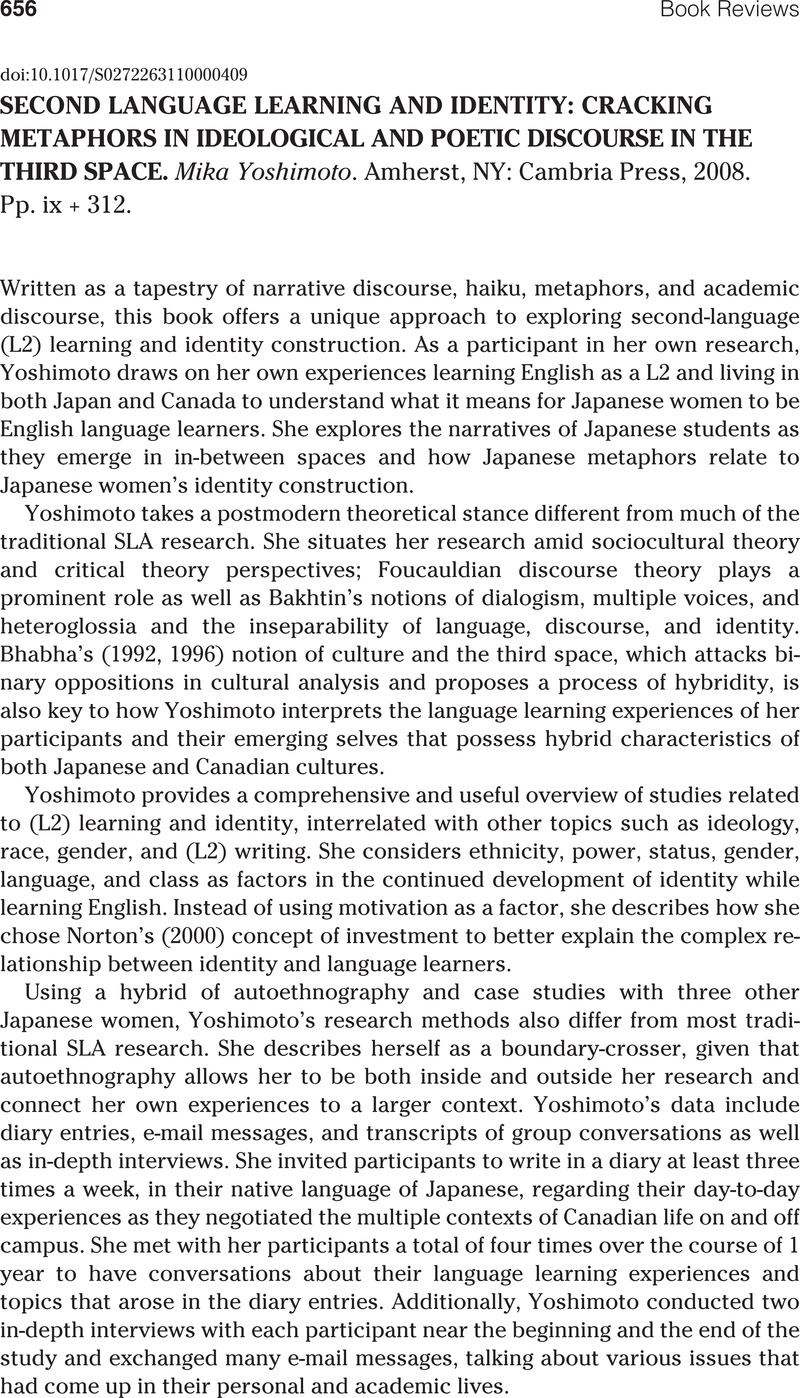No CrossRef data available.
Article contents
SECOND LANGUAGE LEARNING AND IDENTITY: CRACKING METAPHORS IN IDEOLOGICAL AND POETIC DISCOURSE IN THE THIRD SPACE. Mika Yoshimoto. Amherst, NY: Cambria Press, 2008. Pp. ix + 312.
Published online by Cambridge University Press: 18 January 2011
Abstract
An abstract is not available for this content so a preview has been provided. Please use the Get access link above for information on how to access this content.

- Type
- Book Reviews
- Information
- Copyright
- Copyright © Cambridge University Press 2010
References
REFERENCES
Bhabha, H. K. (1992). Postcolonial authority and postmodern guilt. In Grossberg, L., Nelson, C., & Treichler, P. (Eds.), Cultural studies (pp. 56–66). London: Routledge.Google Scholar
Bhabha, H. K. (1996). Culture’s in-between? In Hall, S. & Gay, P. D. (Eds.), Questions of cultural identity (pp. 53–60). Thousand Oaks, CA: Sage.Google Scholar
Norton, B. (2000). Identity and language learning: Gender, ethnicity and educational change. London: Longman.Google Scholar


